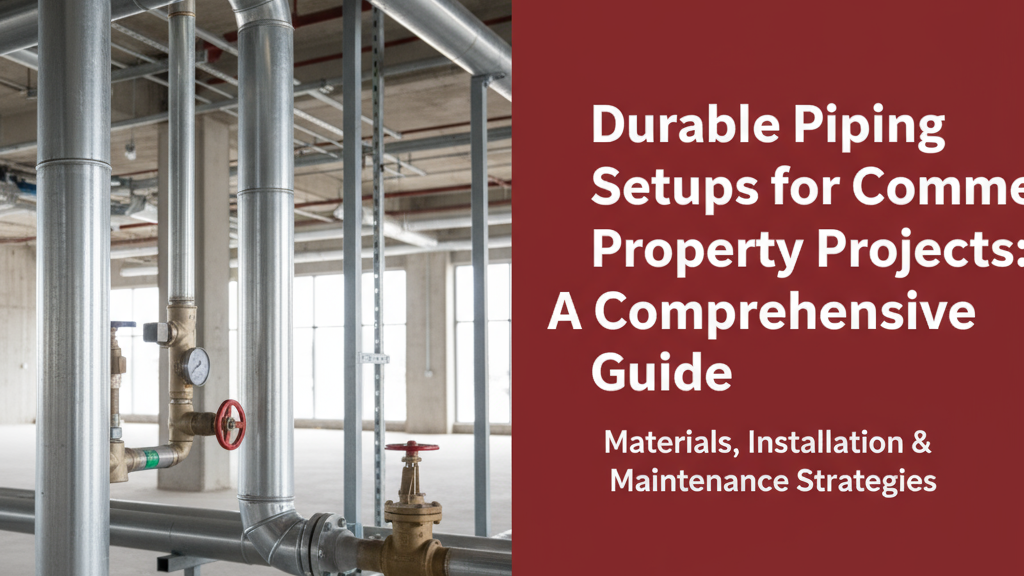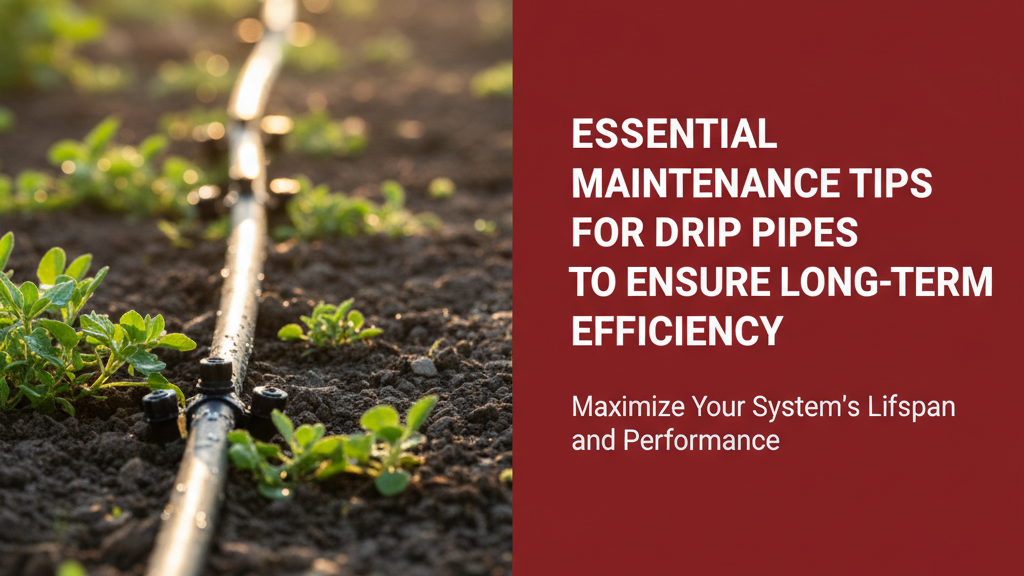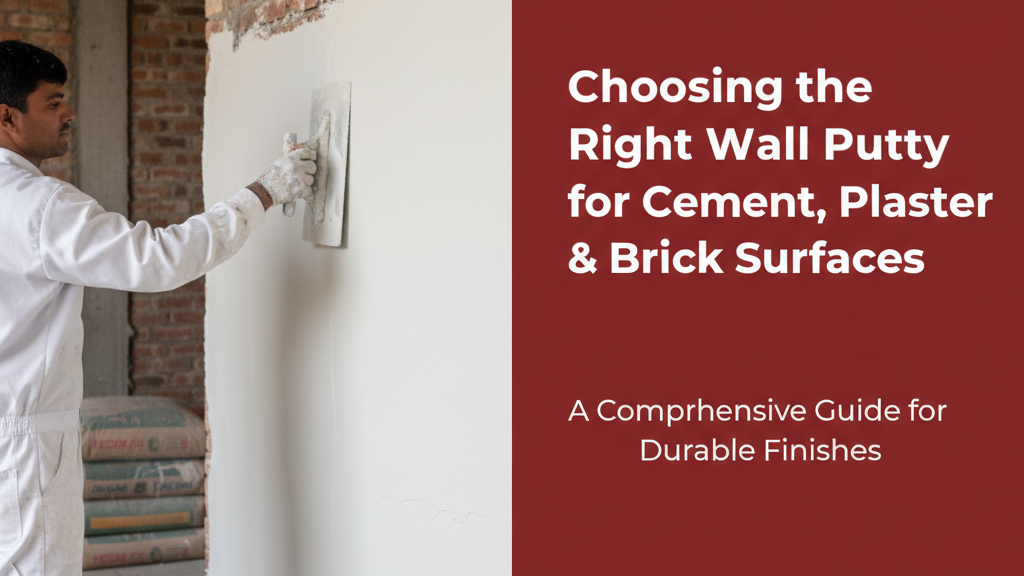Introduction to Durable Piping Setups
Commercial property projects demand piping systems that withstand high usage, variable pressures, and India’s diverse climate conditions. Unlike residential installations, these systems must serve dozens or hundreds of users daily while resisting corrosion, temperature fluctuations, and physical stresses. Selecting the right materials and installation practices can prevent costly repairs and water losses that affect operational continuity.
Why Durability Matters in Commercial Piping
A commercial building’s piping directly impacts:
- Operational costs: Leaks or bursts can lead to inflated water bills and emergency repairs
- Health and safety: Degraded pipes risk contamination or flooding hazards
- Compliance: Many municipalities enforce strict material and pressure standards
- Long-term value: Durable systems require fewer replacements over decades
Builders report replacing inferior pipes within 7–12 years in high-usage scenarios—far sooner than the 25–50 year lifespans possible with robust installations.
Materials for Long-Lasting Piping Systems
Each material suits different commercial applications:
| Material | Typical Lifespan | Best For | Limitations |
|---|---|---|---|
| HDPE | 25–50 years | Underground supply lines, corrosive environments | Not suitable for high-temperature applications |
| Copper | 40–70 years | Hot water lines, hospitals | Higher cost, theft risk |
| Steel (Galvanised) | 15–25 years | Fire suppression systems | Prone to corrosion without coatings |
HDPE Pipes: A Modern Solution
High-Density Polyethylene (HDPE) pipes offer advantages that suit India’s commercial needs:
- Corrosion-proof: Immune to rust, scale buildup, and most chemicals
- Joint reliability: Butt fusion creates seamless connections
- Flexibility: Withstands minor ground shifts without cracking
- Flow efficiency: Smooth interior maintains pressure better than metal
For underground installations supplying shopping complexes or industrial parks, HDPE’s leak-free joints prevent the 20–30% water losses common with threaded metal pipe systems.
Copper Pipes: Traditional Yet Reliable
Copper remains preferred for specific commercial applications:
- Temperature tolerance: Handles hot water up to 93°C continuously
- Bio-static surface: Inhibits bacterial growth crucial for healthcare
- Freeze resistance: Less likely to burst than rigid alternatives
However, copper’s high thermal conductivity (385 W/m·K) necessitates insulation in air-conditioned spaces to prevent condensation and energy loss.
Steel Pipes: Strength and Longevity
Galvanised or stainless steel pipes serve where brute strength matters most:
- Impact resistance: Essential for fire sprinkler lines
- Fire safety: Won’t combust or emit toxic fumes
- Load-bearing: Supports vertical risers without sagging
Properly coated steel can last decades, but uncoated sections rust within months in India’s humid coastal regions.
Key Considerations for Installation
Commercial installations differ from residential projects:
- Access: Leave clearance for future maintenance
- Expansion: Allow for thermal movement in long runs
- Labelling: Colour-code pipes per Indian Standard IS 2379
- Testing: Pressure test at 1.5× working pressure before concealment
Proper Sizing and Pressure Ratings
Undersized pipes cause:
- Turbulence that erodes pipe walls
- Pressure drops affecting upper-floor users
- Higher pumping costs
Calculate diameters using flow rates (litres/second) and Hazen-Williams friction coefficients:
| Application | Flow Rate | Min. Diameter |
|---|---|---|
| Office building (10 floors) | 12 L/s | 80 mm |
| Hospital | 20 L/s | 100 mm |
Best Practices for Maintenance
Preventative care extends system lifespans:
- Schedule annual pressure tests during low-usage periods
- Inspect exposed pipes monthly for condensation or discoloration
- Flush sections prone to sedimentation
- Document all repairs for warranty claims
Inspecting for Potential Issues
Warning signs include:
- Water hammer noise: Indicates inadequate air chambers
- Gradually decreasing pressure: Suggests scale buildup
- Unexplained water bill spikes: Hidden leaks likely
Regular Cleaning and Upkeep
Commercial systems require:
- Bi-annual descaling where water hardness exceeds 200 ppm
- Strainer cleaning in cooling tower supply lines
- Corrosion inhibitor checks in closed-loop systems
Conclusion: Investing in Durability
A commercial property’s piping represents just 2–4% of construction costs but affects 100% of operations. Selecting materials suited to your climate, water chemistry, and usage patterns—then pairing them with professional installation—prevents disruptions that cost far more than the initial premium for quality.



